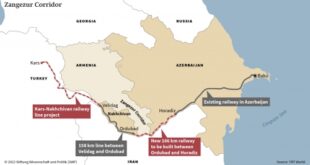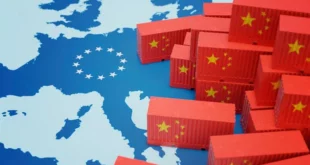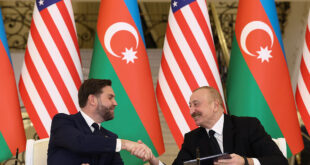 The war between Dmitry Medvedev and Vladimir Putin actually has already begun. Supporters and associates of former leader of the Kremlin held leading posts in the new government of Russia.The New York Times writes that in announcing the cabinet, Putin sat at the same place at a table that he used as president for these performances. President Medvedev sat in a chair that viewers have come to regard as one for subordinates. All this, as the newspaper writes, suggests that Medvedev is Putin’s puppet. But will this phase of their relationship last long?
The war between Dmitry Medvedev and Vladimir Putin actually has already begun. Supporters and associates of former leader of the Kremlin held leading posts in the new government of Russia.The New York Times writes that in announcing the cabinet, Putin sat at the same place at a table that he used as president for these performances. President Medvedev sat in a chair that viewers have come to regard as one for subordinates. All this, as the newspaper writes, suggests that Medvedev is Putin’s puppet. But will this phase of their relationship last long?
Â
As one of the Russian commentators neatly observed – “autocracy is not divided in two”.
Â
Observers note that “converted to premiere” Putin played a key role in forming a new government. In particular, he has replaced the so-called power bloc, which formerly head of the government simply could not do. Putin did it in his style: “people from the outside” have become the heads of emerged groupings.
Â
Russian political analyst Dmitry Oreshkin believes that by his decisions Putin shows who is the master in the house. In his commentary to radio Liberty he noted:
Â
“From my point of view, the question of consolidation must be considered after when Medvedev made his move. He, however, also has his own considerations. And how would he build his administration, in what extent would build it – that what is important. In the meantime, I would say that those decisions must be seen not in terms of who came or who went, but more in terms of in what field does Putin allow himself to take personnel actions.
Â
I mean, traditionally in our country the power bloc was formed by the President, Commander-in-Chief, and now Vladimir Putin made an easy and unconstrained application of the fact that he forms the national security. It’s not important whether Bortnikov is good, or Bortnikov is bad, Patrushev is good, Patrushev is bad, but the important thing is that Putin made this shift.
Â
Prime ministers have never before appointed the heads of FSB, this has always been the initiative and prerogative of the president. The same can be said about Lavrov. Saving Lavrov as a head of the Ministry of Foreign Affairs in all the traditions of diplomatic affairs interpreted as a succession of foreign policy. But the question whether this course remains or changes, in Russia has always decided by the president. And now prime minister decided it easily and naturally. So that is my feeling that by these decisions Putin showed who is the boss”.
Â
According to the latest data another Putin’s man Vladislav Surkov has strengthen his positions. He became the first deputy head of the presidential administration of Medvedev. According to rumours, Putin insisted to post Surkov as a head of administration, but eventually the head of administration was handed over to another Ñhekist Naryshkin.
Â
Many Russian politicians and political analysts have already given their opinions on the new government of Russia led by Putin. They point out that the centre of power and decision-making passes to the Government, while the Kremlin is becoming more a representative structure.
Â
Putin’s men will continue to determine the course of cases. In this regard, it is interesting the estimation of the so-called president of “Alfa Veterans Association” Sergei Goncharov, who believes that the functions and powers of the Security Council of the Russian Federation will be expanded with the coming to the post of Secretary SC of RF Nikolai Patrushev.
Â
“Patrushev’s appointment to this position is a very serious nomination”, says Goncharov. “Previously SB RF was a blurred and amorphous body “We should expect the Security Council’s functions to expand, because it will become a more serious grouping that will not only advise, but also influence the situation. Previously SC of RF was a blurred and amorphous body”.
Â
We would like to remind that the SC of Russia directly subordinate to the president of the Russian Federation and till now has not had a serious impact on decision-making. With coming to the post of companion of Putin, the situation could change. In doing so, the formal subordination to the president of Russia will not play a significant role in the new configuration of power.
Â
Ruslan Sinbarigov,
Kavkaz Center
 Eurasia Press & News
Eurasia Press & News



